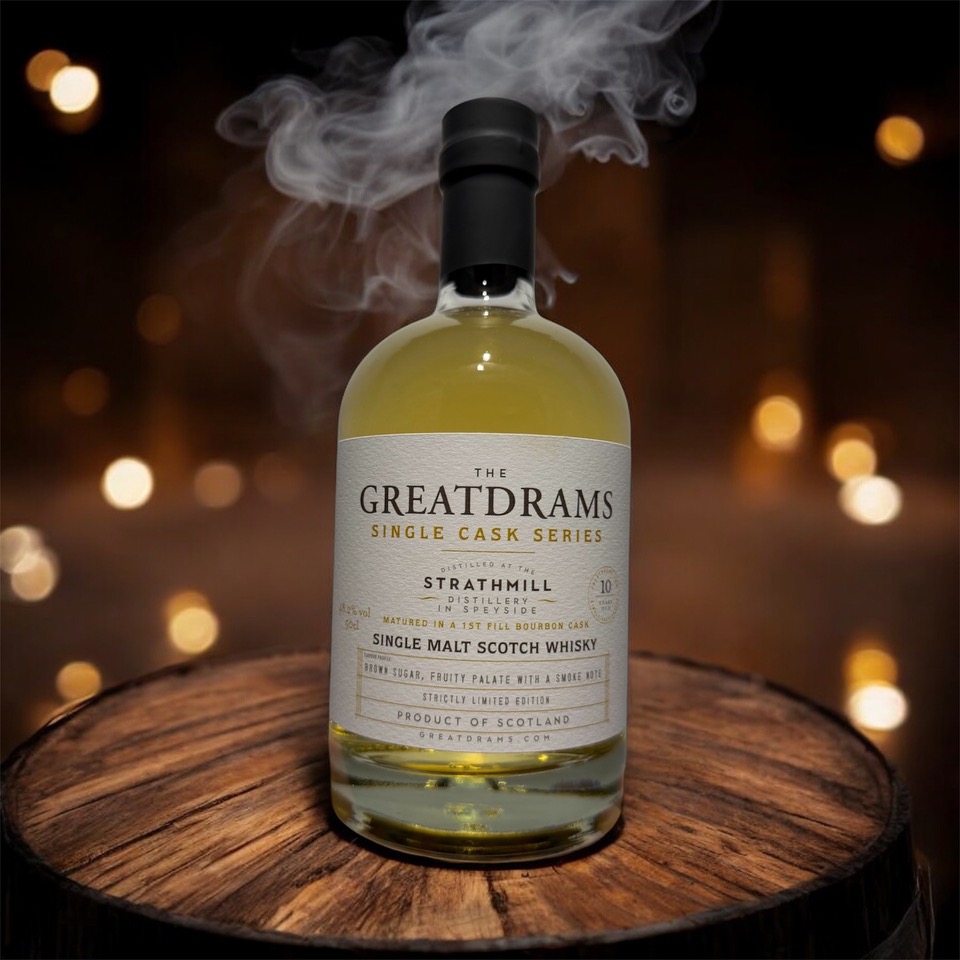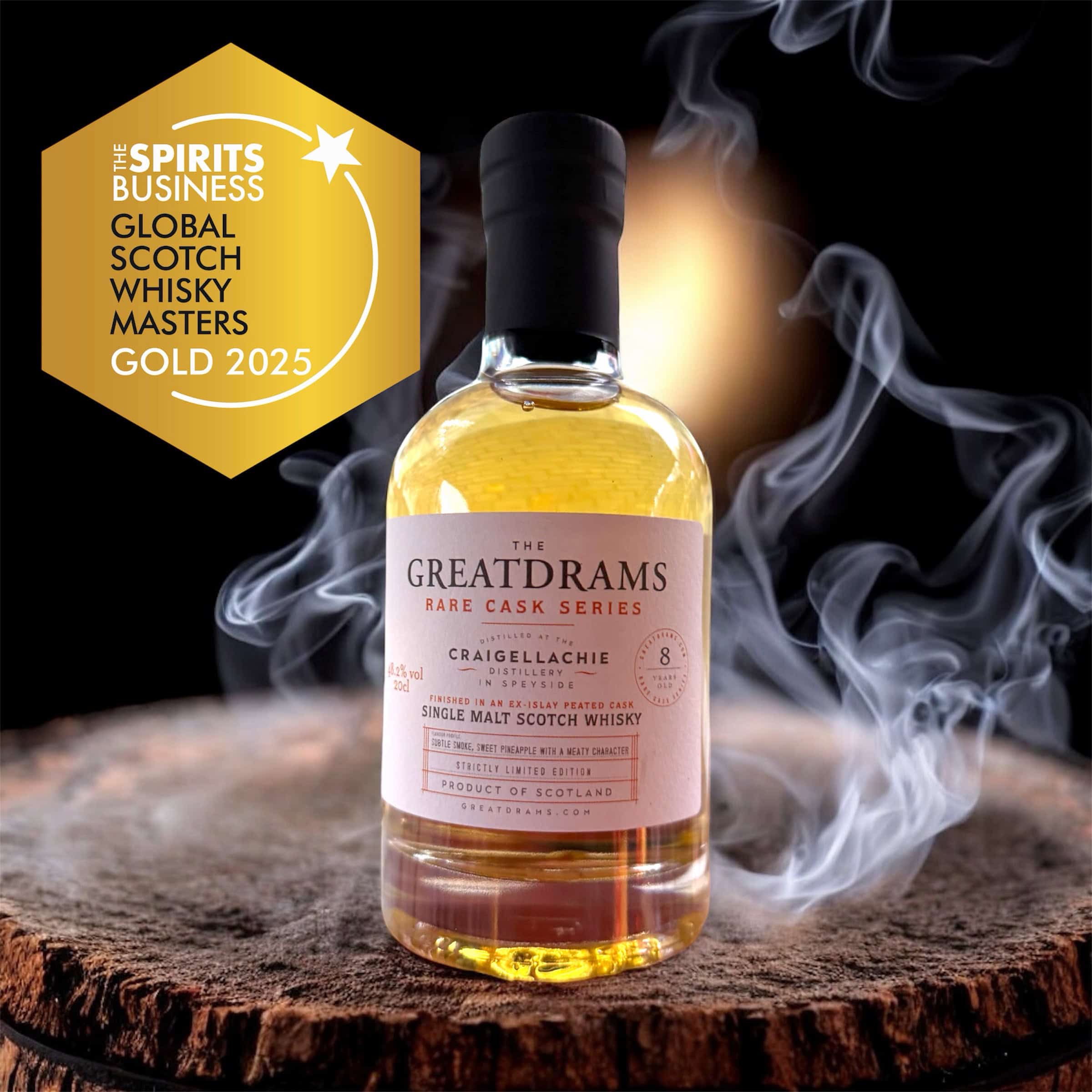The Great Drams Guide to Triple Distilled Whiskey
Even though we primarily specialise in Scotch whisky here at Great Drams, don’t let that fool you into thinking we’ve no place for Irish whiskey here, because that’s definitely not the case.
Irish whiskey can taste phenomenal and offers a wide range of different flavour profiles that you just don’t get with other whiskies. One of Irish whiskey’s trademark characteristics, however, is its smoothness, which comes from the distillation process.
Most, not all, but most Irish whiskies are triple distilled. In fact, some Scotch whiskies also undergo triple distillation, especially those from the Lowlands region. The process produces a smoother, well-rounded, less complex spirit that lends itself beautifully to most palates.
Today, I’m going to talk you through this process and provide a brief, yet informative look at triple-distilled whiskey. This is the Great Drams guide to triple-distilled whiskey.
What is Distillation?
In order to understand triple distillation, we first need to understand distillation in general.
Keeping things very brief as I’ll be covering the ins and outs of whisky production another time, distillation is a process of heating and then condensing alcohol to produce everything that is great about whiskey, while removing everything that is bad, while also producing a stronger ABV.
In whiskey production, the liquid mash is heated in a still vessel, just before it boils. This causes alcohol and other compounds in the liquid to rise and vaporise, passing over the neck of the still into a condenser, cooled with water, or a worm, which is a coiled copper pipe covered in cold running water.
Here the vapours are cooled and condensed into a liquid, which will eventually become whiskey.
Irish Whiskey and Triple Distillation
Those who are familiar with our beloved whisky/whiskey will no doubt see the words ‘triple distilled’ and automatically think of Irish whiskey. There’s a very good reason for that.
A great deal of Irish whiskies, Redbreast, Powers, and Bushmills for example, are typically triple distilled. But why? Well, there are actually a few reasons, though tax evasion is the most prominent example.
Triple distillation is believed to have originated in the late 18th century as a result of a new tax being placed upon malted barley around 1785. Because malted barley was now much more expensive, whiskey distillers would use unmalted barley instead. The problem is that the raw grains wouldn’t yield as much alcohol, and you can’t have that!
To get around this issue, rather than distilling the grains twice, distillers would add a third distillation to get more alcohol from the mash. This style became known as single pot still and resulted in a whiskey as strong as Scotch, but with fewer harsh notes.
Triple distillation provided a smoother, softer, well-rounded whiskey that was much easier to drink than other whiskies rich in peat smoke and with high alcohol contents. Instead of the harsh alcohol and smoke notes, you could taste more of the different flavours in the whiskey.
By law, Irish whiskey does NOT need to be triple distilled. In fact, there are a fair few Irish whiskies that only undergo two levels of distillation. The majority of popular single pot still Irish whiskies, though, are triple distilled.
What is Triple Distillation?
When producing whiskey/whisky, both Scotch and Irish whiskey are produced by a process known as ‘batch distillation’, as opposed to continuous distillation.
With batch distillation, large copper bulbous-shaped vessels known as ‘pot stills’ are used. In whisky production, you’ll find that copper is used a great deal. This is because copper not only conducts heat well, but it also reacts with alcohol during the distillation process to eliminate harsh compounds and bring out more pleasant compounds known as esters. These give the whiskey its fruity and floral notes. The longer the whiskey is in contact with the copper, the more esters will be produced, and the fewer harsh compounds there will be.
In most Scotch whisky production, distillation will first take place in a larger wash-still. This usually provides an ABV of around 21% – 30% ABV. The liquid is then transferred into a smaller spirits-still, where it is concentrated further to provide ABV readings of as much as 70% ABV.
With Irish whiskey production, a third distillation process is added. Here, between the wash-still and spirits still, the liquid will be distilled in what is known as a feint still. The idea here is that the first distillation extracts more alcohol and vapours from the liquid, while the third helps bump up the ABV and adds more esters to bring out more fruity, floral, and aromatic flavours.
So, what does the second feint still in the middle do? Well, it essentially does a little bit of both. It brings out more fruity flavours, concentrates them, and gives the whiskey more roundness and smoothness, with a fuller body.
Triple distillation essentially provides a lighter, smoother, purer, more rounded whiskey with fewer harsh alcohol notes and more concentrated flavours instead.
If you’d like to learn more about your favourite whiskies, or treat yourself to a wee dram or two over the festive period, head on over to GreatDrams.com and take a look at what we have to offer.
With an impressive selection of limited-edition, rare, and award-winning whisky, as well as heaps of whisky info on our blog, it’s the perfect spot for any whisky lovers out there.














